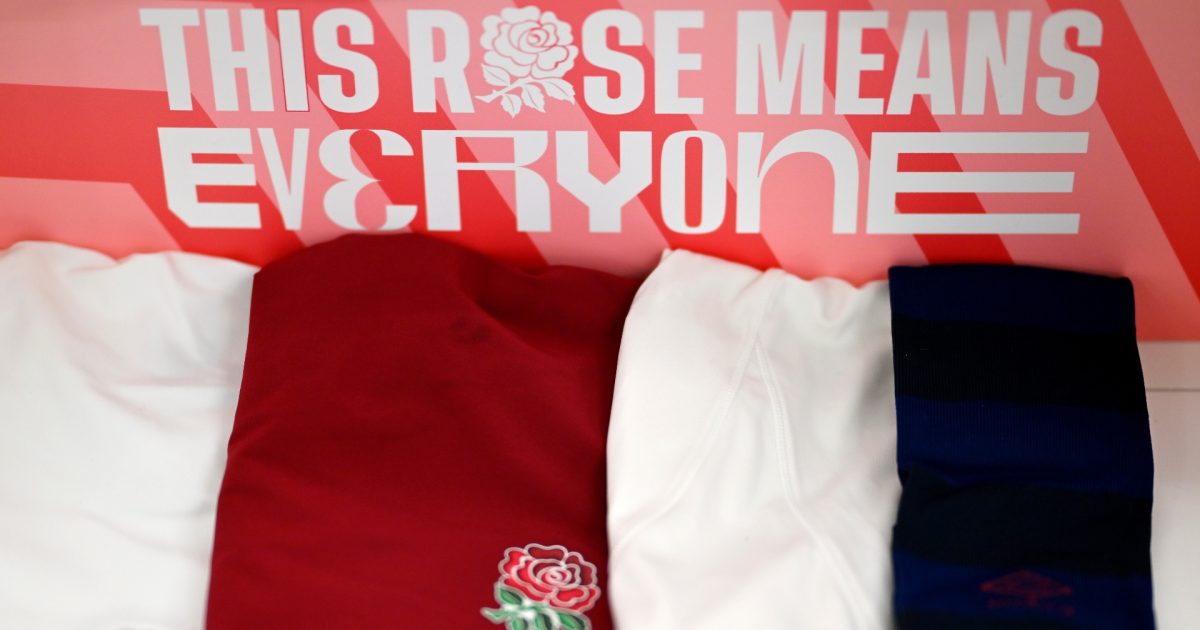The RFU view on England A team 'capture' of dual-eligible players

England high performance boss Conor O’Shea has insisted that the revival of the A team after an eight-year break won’t be cynically exploited as a means to capture uncapped players who have the qualifications to represent other countries.
Not since 2016 when they toured South Africa as the Saxons have England fielded a representative side at A team level. That gap will finally end on February 25 at Mattioli Woods Welford Road when a selection coached by George Skivington take on Portugal, the surprise packet at the recent 2023 Rugby World Cup in France.
The absence of the A team meant that England have lost out in recent times on the likes of Paolo Odogwu and Louis Lynagh, players who were involved in senior squads under Eddie Jones. They were never capped at Test level and were unable to play at A level as that team had lapsed, enabling them to ultimately declare their allegiance to Italy.
England now plan to arrange between three to four A level internationals per year but O’Shea, the RFU’s director of rugby performance, insisted that tying dual-country-eligible players to England wasn’t the reason for the grade’s revival.
Instead, he explained on Thursday following the confirmation of a provisional squad of 27 for the match against the Portuguese that the absence of the A team had been a sorely missing link in the player development pathway between U20s and Test level.
“It [dual-country-eligibility] doesn’t really come into consideration at all,” he said after the announcement of an A team squad featuring 22 uncapped players. “We have been very open and had some conversations with players as well to make sure it’s not looking like this. We want to make sure that it’s what we believe it is for, that bridge.
“We don’t have many of them and if we did, there are plenty of players that we could look at and say, ‘We will pick a, b, c and d’ and we haven’t done that. We wouldn’t do it down through the system either. Some people have said, ‘Should we fast-track some player?’ No, we will do it when it’s right.
“The purpose of this is performance and the real thing for me is international rugby is a different kettle of fish and it’s seeing how those people operate, keeping that connection (from U20s)… you want the young kids who are growing up together through a system to maintain that connection and to have another experience together.n
“What we have over the past eight years of England A (not being around) is you literally had a stopping point and that stopping point has been U20s and then the next time they see each other is down the road in a camp when they haven’t been together for years, they have been in opposition (with their clubs). It’s such a difference.
“This isn’t about capture in any shape, way or form. If it was about capture, you’d have done it years ago. This is about the right time to reintroduce it [the A team]. The season structure allows it with 10 teams without overloading players and hopefully we will have some really exciting fixtures to come.”
How many ideally? “Three to four, and four may be a stretch because we are very conscious of overloading but also you want a programme where you have an element of consistency for some of these young players in it. But it will be done in the international windows.
“If you look at season structure, there tends to be a challenge – which all unions will have as well – from end-of-season through to the tour; if you are knocked out before the (club) play-offs you are going to have six or seven weeks (off).
“We also have a Junior World Cup U20s so a match in that period will act as a good bridge as well as the fallow week in the Six Nations.
“A fallow week would have been easier on us all [the Portugal game takes place the day after England versus Scotland in the Six Nations] because there is a lot of activity going on, but this was the only time we could do this and we felt it was important to get it up and running.”










































































Are A team fixtures considered tests? I personally don’t think they should be
Disagree they are Tests played against other Test sides, this has always been the case with England A adult sides.